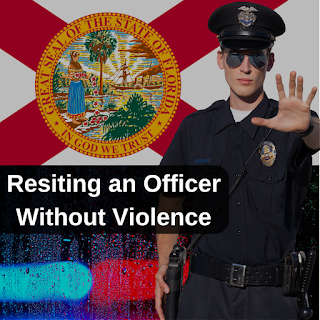Refusing to Submit to Roadside Sobriety Tests in Florida: Know Your Rights
If you've ever been pulled over by a police officer in Florida, you may have been asked to perform a series of roadside sobriety tests. These tests are designed to determine whether you are impaired by drugs or alcohol, and can include tasks such as walking in a straight line or standing on one leg.
It's important to note that a police officer must have a reasonable suspicion of DUI before asking a driver to perform roadside sobriety tests. In the case of State v. Kiper, the Fifth District Court of Appeal held that these tests are more intrusive than other types of traffic stops and officers cannot simply use them as a fishing expedition to look for evidence of impairment.
While roadside sobriety tests are commonly used by law enforcement, there are some important things you should know if you are asked to perform them. In this blog post, we'll provide an overview of roadside sobriety tests in Florida, explain why you might want to refuse them, and discuss your legal rights when stopped for suspected DUI.
What Are Roadside Sobriety Tests?
Roadside sobriety tests are physical and cognitive tasks that police officers use to determine whether a driver is under the influence of drugs or alcohol. The tests are typically performed at the side of the road, and can include the following:
Horizontal gaze nystagmus (HGN) test: This test involves following an object, such as a pen or flashlight, with your eyes while keeping your head still. The officer will look for involuntary jerking of the eyes, which can be a sign of impairment.
Walk-and-turn test: This test requires you to take nine heel-to-toe steps along a straight line, turn around, and take nine heel-to-toe steps back. The officer will look for signs of imbalance or difficulty following instructions.
One-leg stand test: This test requires you to stand on one leg for a certain amount of time, usually 30 seconds. The officer will look for signs of swaying or losing balance.
While these tests are designed to be simple and easy to perform, they can also be subjective and unreliable. Factors such as fatigue, nerves, and physical conditions can all affect your performance on these tests, and the officer's interpretation of your performance can be influenced by a variety of factors, including their own biases and training.
Why You Might Want to Refuse a Roadside Sobriety Test
If you are asked to perform a roadside sobriety test, you may want to consider refusing. There are several reasons why you might want to do so:
- The tests are voluntary: You are not required to perform roadside sobriety tests in Florida, and you cannot be arrested for refusing to do so. However, if you refuse to take a breath test after being arrested for suspected DUI, your driver's license may be suspended.
- The tests are subjective: As we mentioned earlier, the officer's interpretation of your performance on these tests can be influenced by a variety of factors, including their own biases and training.
- The tests are unreliable: Roadside sobriety tests are not always accurate in determining impairment, and there is no scientific evidence to support their use in predicting blood alcohol concentration (BAC).
It's important to note that refusing a roadside sobriety test is not the same as refusing a breath test after being arrested for suspected DUI. While you cannot be arrested for refusing a roadside sobriety test, refusing a breath test after being arrested can result in a suspension of your driver's license.
Your Legal Rights When Stopped and they Suspect DUI
If you are stopped by a police officer for suspected DUI in Florida, you have certain legal rights. These include:
The right to remain silent: You are not required to answer any questions about where you have been or what you have been doing.
The right to refuse a roadside sobriety test: As we mentioned earlier, these tests are voluntary, and you cannot be arrested for refusing to perform them if the officer does not have a reasonable suspicion of DUI.
The right to refuse a breath test after being arrested: However, refusing a breath test after being arrested can result in a suspension of your driver's license, as Florida has an "implied consent" law that requires drivers to submit to a breath test if they are lawfully arrested for DUI.
The right to consult with an attorney: If you are arrested for DUI, you have the right to consult with an attorney before submitting to any tests or answering any questions.
It's important to remember that you have these rights and to exercise them if you are stopped for suspected DUI. While cooperating with law enforcement is generally a good idea, it's also important to protect your legal rights and avoid incriminating yourself.
Conclusion
Roadside sobriety tests can be an intimidating experience, but it's important to understand your legal rights and options if you are asked to perform them. Remember that these tests are voluntary, and that you cannot be arrested for refusing to perform them if the officer does not have a reasonable suspicion of DUI. If you are arrested for DUI, it's important to consult with an experienced criminal defense attorney who can help protect your rights and advocate on your behalf. By understanding your legal rights and options, you can make informed decisions and avoid potential legal consequences.
Jeff Lotter
Criminal Defense Attorney
407-500-7000



.png)
Comments
Post a Comment